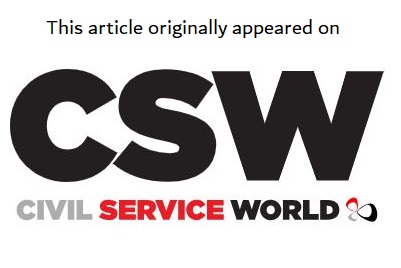Following criticism from politicians and civil society, the Office for Statistics Regulation is investigating Rishi Sunak’s statements concerning government’s progress in dealing with tens of thousands of claims for asylum
The Office for Statistics Regulation is investigating the government’s claim that it has cleared the asylum backlog.
Rishi Sunak said last week that his government had successfully cleared the backlog of asylum claims awaiting decisions by Home Office officials, although almost 100,000 cases remain in the system. The Home Office clarified that this referred to the “legacy” backlog of cases pre-28 June, 2022 that Sunak had committed to “abolish” by the end of 2023.
But the department also confirmed there were almost 5,000 “legacy” cases left that have not been decided. The 4,537 “complex cases” require additional checks or investigation for a final decision to be made.
Home secretary James Cleverly argued on 2 January that the government’s promise had been to “process” all remaining legacy claims by the end of 2023, rather than complete them.
A spokesperson for the UK Statistics Authority said the OSR – its independent regulatory arm – is “looking into the government’s announcement about the asylum backlog”.
The OSR began investigating after concerns were raised with the regulator, it is understood. The government’s claims have come in for criticism from politicians and NGOs.
Yvette Cooper, Labour’s shadow home secretary, said the claim that the asylum backlog has been cleared is “not true”. She also disputed the argument that the “legacy” backlog had been cleared.
Related content
- Asylum backlog tops 160,000 as Home Office streamlines process for five countries
- UK’s asylum backlog has doubled since 2020 – and Home Office cannot say how many interviews it conducted last year
- ‘Typical hostile environment treatment’ – Home Office leaves thousands of Turkish nationals waiting more than a year for visa decisions
Enver Solomon, chief executive of the Refugee Council, said it was “misleading” for Sunak and his ministers to claim that the backlog has been cleared as “thousands are still waiting for a decision”.
The OSR’s investigations will include getting more information from the Home Office. Action it could take might include writing privately or publicly to the department to set out expectations for the use of statistics or, if there is a very worrying use of statistics or evidence of misconduct, the regulator could write to the home secretary. This happened in 2021, when then-justice secretary Dominic Raab was rapped over a leak of figures about transgender prisoners.
The OSR can also downgrade the level of accreditation it gives to statistics if a department puts a release out that has too many errors, in the wrong format or communicates it poorly. There are three levels: “accredited official statistics”, “official statistics”, and “official statistics in development”.
However, this accreditation does not normally apply to ad-hoc stats such as the ones unveiled by the Home Office this week.
The Home Office will publish its next official quarterly stats on migration will be published on February 29.
The Home Office was warned last year over ministers’ use of statistics. In May, Ed Humpherson, the OSR’s director general for regulation, expressed his “disappointment that claims continue to be made by ministers that cannot be verified from the Home Office’s published statistics”. He warned that “the continued misuse of these data by ministers may undermine public confidence in the statistical and analytical outputs of the department and of ministerial statements related to them”.





